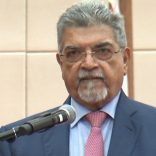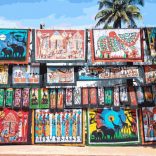ATAF launches hands-on support for tax audits in Mozambique
Bank of Mozambique postpones meeting on monetary policy “for technical reasons”

File photo / Bank of Mozambique's new headquarters in Maputo
The Monetary Policy Committee of the Bank of Mozambique (MPC) has postponed its meeting scheduled for Monday (July 18) “for technical reasons” which have not been specified, reports A Verdade.
According to A Verdade, restrictive measures by the central bank have been stifling small and medium-sized Mozambican companies and ordinary citizens since the end of last year, when its hike in benchmark rates made access to money more expensive.
Eduardo Sengo, spokesman for the Confederation of Economic Associations of Mozambique, he told A Verdade in a recent interview: “(…) The reading of the situation may lead one to think that the increases in reference rates can resolve the situation, but, after thorough analysis, what we clearly realise is that this situation will not resolve [the situation], not even with a benchmark rate of 40 percent. If we do not find other measures in terms of fiscal policy, in terms of agrarian policies, we will not get through this.”
A Verdade says it has attempted unsuccessfully to ask the Bank of Mozambique whether it is aware that its monetary policy decisions are not stimulating domestic food production as a means of achieving food self-sufficiency as recommended by the government?
Economist Oksana Mandlate, researcher at the Research Group on Economy and Development at the Institute of Economic and Social Studies, explained to A Verdade that “the increase in interest rates by the central bank is based on the assumption that inflation is linked to an excess of demand in the economy, and aims to slow consumption and domestic investment. But in the case of Mozambique, whose economy is dependent on imports, much of the inflation in consumer goods is imported, partly due to the deterioration of the exchange rate. Domestic value chains impute high costs in products, both due to the small scale of operation and to high costs and profits which result from the structure of the economy and markets. If we increase the cost of business financing and make projects oriented to the production of basic goods unviable, to what extent does this fight inflation?” the economist asks.
According to the National Statistics Institute, inflation increased again in June. In the last six months, “the country has deteriorated the general price level by 9.29 percent. Compared to the same period in 2015, the country recorded price increases of around 19.72 percent”.
Lack of foreign exchange has been a reality since the the end of 2015, when the Bank of Mozambique had to resort to credit from the International Monetary Fund to bolster international currency reserves, which fell from US$3.8 billion in August 2014 to US$1.7 billion in May 2016.
In commercial banks on Tuesday (19 July), the US dollar stood at 65.95 meticais, but on the parallel market was selling at 72 meticais and, according to market sources, was predicted to rise further.












Leave a Reply
1 Comment on "Bank of Mozambique postpones meeting on monetary policy “for technical reasons”"
You must be logged in to post a comment.
You must be logged in to post a comment.
Thank you. A wake up call!
JP